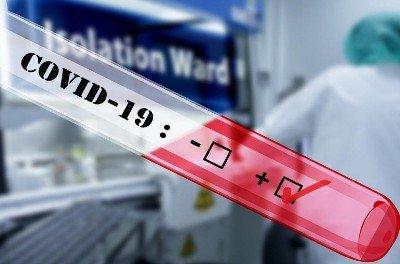Bne IntelliNews: Why Georgia is Succeeding in the Fight against Coronavirus?

Business media company Bne IntelliNews has devoted an article to Georgia's successful and early response to a new coronavirus (COVID-19), according to Georgia Today.
"When the biggest health crisis in a century hits, where would you prefer to be: The Netherlands or Georgia?" asks the author of the article, Alexander Scrivener, of the Eurasia Democratic Security Network.
To compare the two countries, as both of them confirmed their first COVID-19 cases at roughly the same time, the author discusses their methods and measures taken to fight the pandemic.
"The reality of the two countries’ responses to the novel coronavirus, however, shows that being rich doesn’t guarantee effective policy in a time of crisis. If anything, the early signs are that wealthier European countries have tended to respond less effectively than poorer ones - at least initially," he states.
"Early in the crisis, Georgia took strong measures to prevent and detect imported cases. They not only checked the temperatures of all arrivals but gave out clear information and contact details in case they started experiencing symptoms.
"As the crisis escalated in the rest of Europe, Georgia closed its borders and implemented strong social distancing measures, closing all restaurants, bars, and shops apart from grocery stores, banks, petrol stations, pharmacies and post offices."
"Also, all international air traffic was halted except for a few official government flights.
"All this has happened in a country which (at the time of writing) has not seen a single coronavirus death," reads the article.
By contrast, as it turns out, The Netherlands’ reaction was highly complacent.
"Almost no measures were taken, even as the first cases were being confirmed. Business, as usual, was king. Preventing “panic” (which there was no evidence of) was prioritized over actually combating the virus. Dutch authorities initially claimed that the chance of the coronavirus arriving in The Netherlands was “zero” because there are no direct flights from Wuhan. Very few tests were conducted until the first case was confirmed. But even as the number of cases began to rise, the Dutch government failed to take meaningful action," the author concludes.
After considering all the above and comparing measures taken by both countries, he asks the following question: "Did the civil strife and severe shortages that afflicted Georgia in the 1990s help create a political culture that was better equipped to take decisive action even at huge economic cost?"
 Latest news
Latest news Latest news
Latest newsGreece Plans to Exclude Turkiye from Future Defense Contracts
20.Feb.2026
U.S.-Based Mars Launches Major Investment Project in Kazakhstan
20.Feb.2026
Parliamentary Elections 2026 in Armenia as a Geopolitical Referendum
20.Feb.2026
Russia and Ukraine Fail to Reach Agreement in Geneva
19.Feb.2026
The South Caucasus in U.S. Foreign Policy: Implications of High-Level Visits for Russian and Chinese Regional Aspirations
18.Feb.2026
Ukraine Imposes Personal Sanctions on Belarusian President Alexander Lukashenko
18.Feb.2026
72% Against the Authorities: Economic Dissatisfaction Hits Record Levels in Turkiye
17.Feb.2026
Bulgaria Strengthens Defense: First American Stryker Vehicles Delivered
17.Feb.2026
Moscow Criticizes Plans to Build a U.S.-Backed Nuclear Power Plant in Armenia
16.Feb.2026
Washington expects Tbilisi to strengthen ties amid regional changes
15.Feb.2026

 28 Feb 2026
28 Feb 2026









